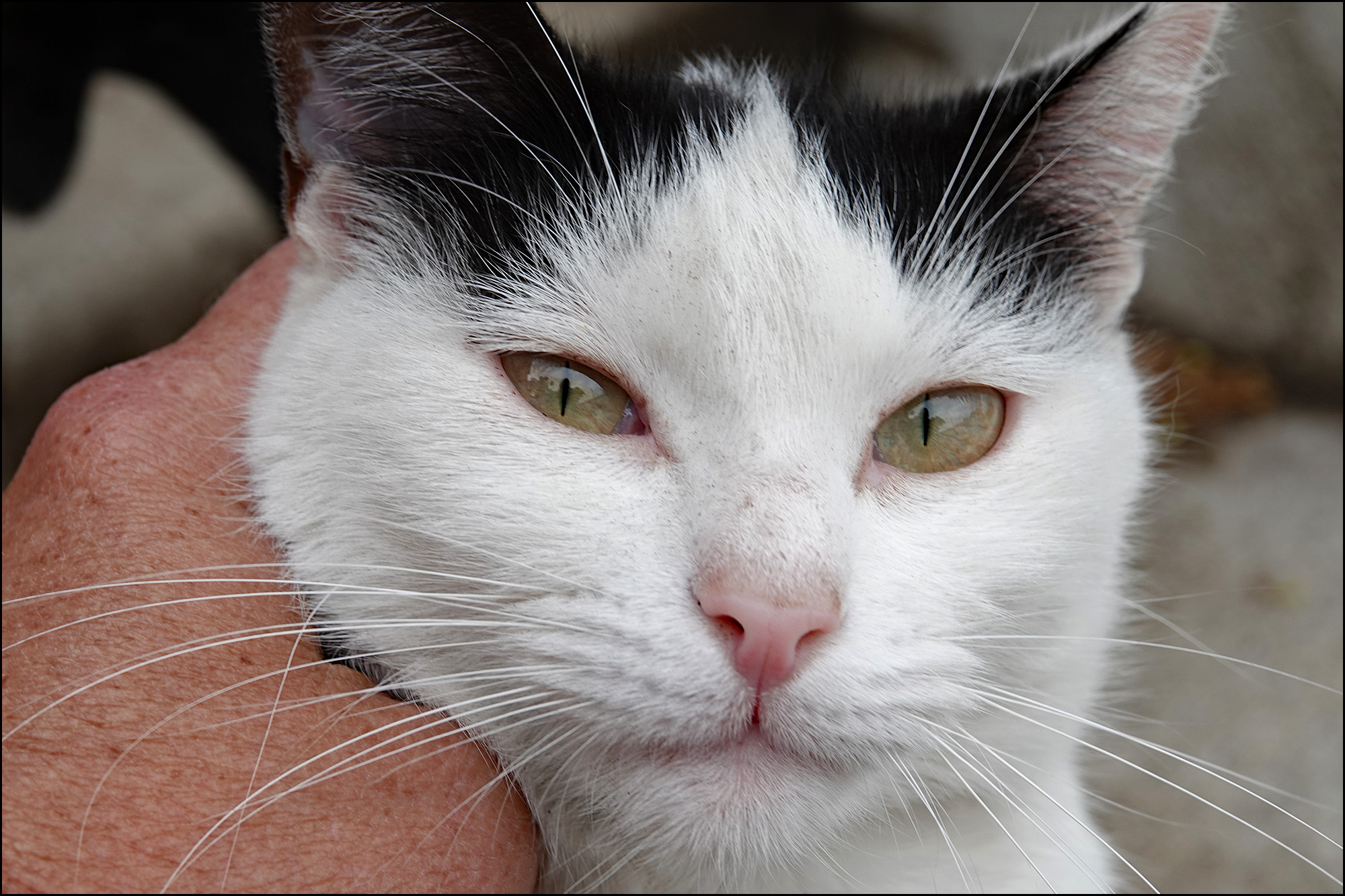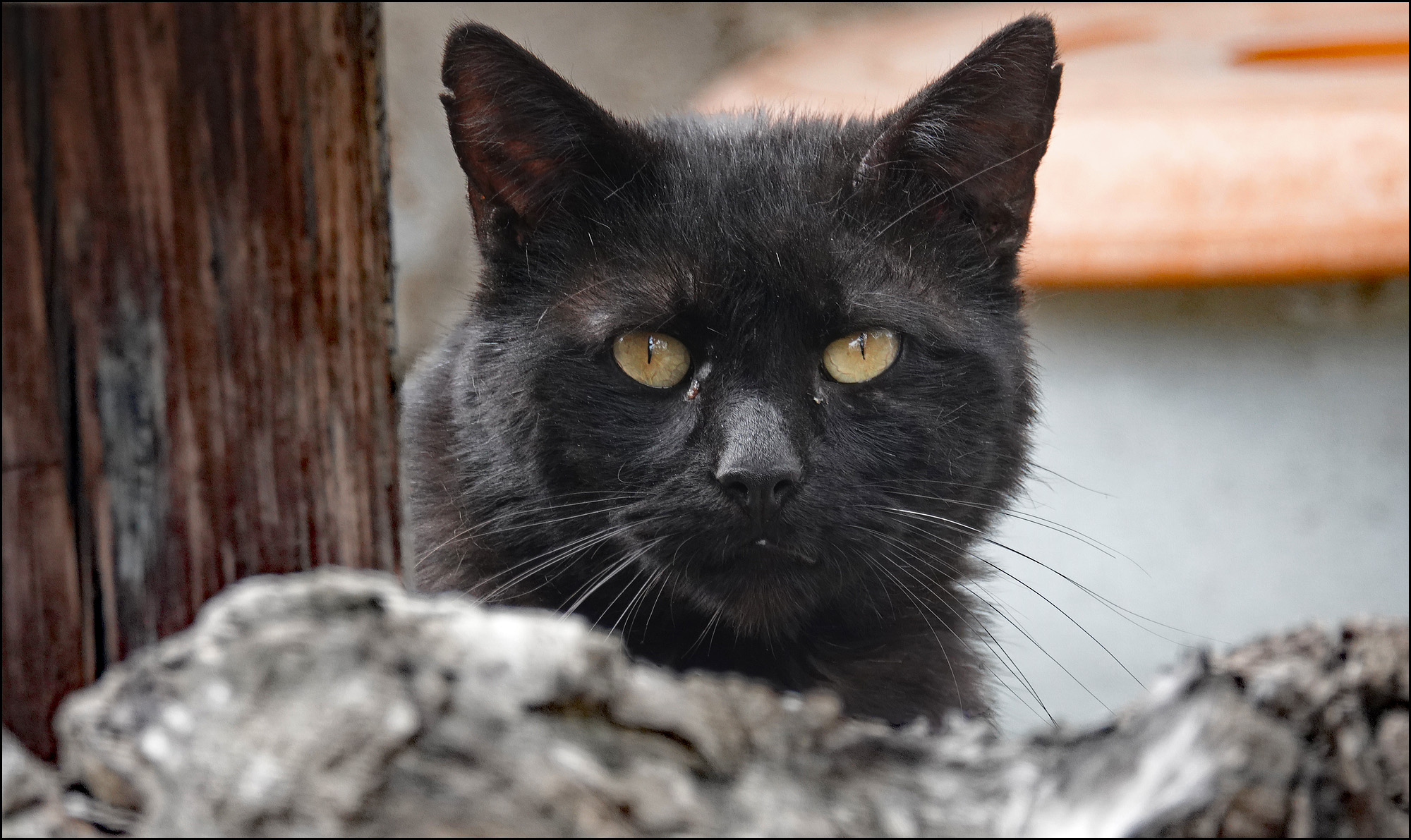












Avril Lavigne in 2002, about a year before her supposed replacement by a lookalike. Photograph: Jim Cooper/AP
Not every article is written while wearing full hi-vis, Perspex goggles, hard hat and abseiling harness, with a police-quality Taser sleeping like a lazy boomslang next to the keyboard.
But this is one such story. That is because I have been tasked with reporting on Avril Lavigne, and “Avril Lavigne” has just been named the most dangerous celebrity search term on the internet.
Malware expert McAfee produces an annual poll, ranking the risk that searching for certain names will lead you to a malware-rich environment, leading to potentially mailicious websites and cybercriminals. This year, for Avril, the risk was 14.5%. It rose to 22.5% when users searched for “Avril Lavigne MP3s” (the fools don’t even know the MP3 format is low quality and now defunct).
In a crowded field, the Canadian tween-punk beat the likes of Bruno Mars, Carly Rae Jepsen, Zayn Malik and Sean Combs, who made up the rest of the top five.

This is not an in-with-a-bullet No 1 for Lavigne, who despite having done little of commercial interest in the past decade, sat at No 2 on last year’s list. Somewhere, for reasons known only to the vagaries of nostalgia and the dank breeding pods of web culture, Lavigne has become a kind of meme unto herself.
The internet already knows that Nickelback is the sound a comedy writer makes in their head when searching for a reference that means “bad music for numbskulls”. When Avril married lead singer Chad Kroeger in 2013, she was not only creating a twisted Canadian pop royal family, she was also marrying into a meme factory. She may have since divorced him, but when you marry memes, you marry for life.
Just as importantly, there is the ongoing attempt to expose her as a having died and being nothing more than a lookalike called Melissa. The theory, which began on a Brazilian fan site and seems to have spread to every corner of the internet, says that a young Avril, uncomfortable with her fame, began using a body double in certain situations. Then, at some point, the real Avril died. So her record label just kept going with the clone. After all, “Melissa” was written on her hand in a photo shoot – and who doesn’t write their own secret name on their hand in publicity shots? All of which was given credence by her near-fatal encounter with Lyme disease in 2015.
But perhaps Avril’s bad rep is merely about timing? She was peaking in popularity (with a very young Bebo-savvy crowd) at the exact point the internet itself was moving from a place of sinister coves and Pirate Bays into the glossy corporate content-engine we know and love today.
After all, as long ago as 2008, her video for Girlfriend became one of the first on YouTube to bust through the 100m views mark. This traffic, though, was itself allegedly driven mainly from a dodgy source – one fansite that encouraged users to follow a link which would keep the video open in their browsers, then refresh it every 15 seconds to spike the view-counter. The malware motherlode normally comes through similar shady sub-scripts – the saga continues.
… we have a small favour to ask. More people are reading the Guardian than ever but advertising revenues across the media are falling fast. And unlike many news organisations, we haven’t put up a paywall – we want to keep our journalism as open as we can. So you can see why we need to ask for your help. The Guardian’s independent, investigative journalism takes a lot of time, money and hard work to produce. But we do it because we believe our perspective matters – because it might well be your perspective, too.
I appreciate there not being a paywall: it is more democratic for the media to be available for all and not a commodity to be purchased by a few. I’m happy to make a contribution so others with less means still have access to information.Thomasine F-R.
If everyone who reads our reporting, who likes it, helps to support it, our future would be much more secure.
[“Source-theguardian”]
Creating your own presence on a blog or online magazine is fun and rewarding. This is especially true for creative individuals who are tired of wearing three-piece suits and attending boardroom meetings. The internet has afforded us the freedom to turn into digital nomads and earn an income from any part of the world. Many creative heads are starting their own blogs and making money from them. However, as more and more of the global population saturates the internet, earning income online becomes more difficult with time.

Image: Shutterstock
Here’s a three-step guide on how you can start a blog and make money online:
Ask yourself what you’re good at, and more importantly, what it is that you love doing? Are you a connoisseur of fashion, or do you love experimenting with technology? Blogging is a passion, and therefore you should start a blog about something you’re passionate about. The niche you select will be your content angle going forward.
However, also remember that mass appeal to a large audience should be the goal of every blogger. You might be tempted to start a blog about crocheting or playing a specific musical instrument. However, refrain from doing so in the beginning as these topics hold a very limited appeal. While it is true that the marketplace is saturated with popular content, starting with a smaller audience won’t help you either.
The next step is to find an excellent home for your blog. There are loads of great hosting companies on the internet. Select your hosting provider wisely, as they will essentially be your partner in your blogging venture. Search for reviews and see if there have been any major issues associated with the hosting provider. Most providers will give you a WordPress plugin and make it relatively easy for you to install WordPress on your hosting account. You might not need a high-capacity account in the beginning, but as you grow, you’ll have to make sure you have the right amount of space and bandwidth to support your traffic.
Your blog won’t make money right from the get-go. Without the right audience and saturation on search engines, you will be unable to pull in traffic. However, you still need to pick an income stream. Will you sell products, run ads, or do both? Whatever it is, you will have to keep at it and produce amazing content if you want to see your blog take off sooner rather than later. The biggest difference between people who make outlandish money and those who fail is that they don’t stop till they ultimately reach their goals. Remember, affiliate sales are going to be your best bet at the outset.
The idea is to never stop learning and do your best to understand more and more about blogging. Some of the most successful blogs earn millions and you can be one of them too if you just stay at it.
Less than two weeks for India’s oldest and biggest tech-startup conference – TechSparks 2017 at Bengaluru on 22nd and 23rd September. Use the code TSPARKS45 to get a special discount here!
[“Source-yourstory”]

This 11-year-old girl lost her left leg in a suicide attack in an internal displaced persons (IDP) site in the Lake Chad Region. After three months in a hospital, she is trying to start over. UNICEF/Bahaji
6 September 2017 – Pervasive levels of poverty, protracted conflicts and complex humanitarian emergencies have led to stagnation in reducing the global out-of-school rate over the past decade, prompting the United Nations Children’s Fund (UNICEF) to call for more investments.
With 11.5 per cent of school-age children – or 123 million missing school today, compared to 12.8 per cent – or 135 million – in 2007, the percentage of out-of-school 6-15 year olds has barely decreased in the last decade, according to UNICEF.
“Investments aimed at increasing the number of schools and teachers to match population growth are not enough,” said UNICEF Chief of Education Jo Bourne.
“This business-as-usual approach will not get the most vulnerable children into school – and help them reach their full potential – if they continue to be trapped in poverty, deprivation and insecurity,” she added.
Children living in the world’s poorest countries and in conflict zones are disproportionally affected. Of the 123 million children missing out on school, 40 per cent live in the least developed countries and 20 per cent live in conflict zones.
UNICEF points out that war continues to threaten – and reverse – education gains.
The conflicts in Iraq and Syria have resulted in an additional 3.4 million children missing out on education, bringing the number of out-of-school children across the Middle East and North Africa back to 2007’s level of approximately 16 million.
With their high levels of poverty, rapidly increasing populations and recurring emergencies, Sub-Saharan Africa and South Asia account for 75 per cent of the global out-of-school primary- and lower-secondary school age population.
“Governments and the global community must target their investments at eliminating the factors preventing these children from going to school in the first place, including by making schools safe and improving teaching and learning,” she continued.
However, some progress has been achieved.
Ethiopia and Niger, among the world’s poorest countries, have made the most enrolment rate progress in primary-school-age children with an increase of more than 15 per cent and around 19 per cent, respectively.
Emergency funding shortfalls for education affect access for children in conflict to attend school.
On average, less than 2.7 per cent of global humanitarian appeals are dedicated to education.
Six-months into 2017, UNICEF had only received 12 per cent of the funding required to provide education for children caught up in crises. More funds are urgently required to address the increasing number and complexity of crises and to give children the stability and opportunities they deserve.
“Learning provides relief for children affected by emergencies in the short-term, but is also a critical investment in the future development of societies in the long-term,” underscored Ms. Bourne.
“Yet investment in education does not respond to the realities of a volatile world. To address this, we must secure greater and more predictable funding for education in unpredictable emergencies,” she concluded.
[“Source-un”]
In the Nigerian blogosphere, Laila Ijeoma commands a lot of respect, not just because she owns www.LailasBlog.com; an entertainment website that reports trending Nigerian news read by millions monthly. On June 30, 2016, Laila took a bold step of abandoning her over N5million per annum bank job to become a full time entertainment blogger; risking everything to take a gamble on her passion.
She traded her lucrative job to pursue what was still at that time, just a hobby she was passionate about, but today, the decision has become one of her best turning points. In a chat with Saturday Woman, she says she has no regrets a year after taking this huge leap of faith as she now has all the time to focus on her family and continue to grow her blog even bigger.

Why did you dump your bank job for fulltime blogging?
I started blogging as a joke in 2012; I wasn’t looking for money because I was already gainfully employed at that time. All I wanted was an outlet to share my life with Nigerians, inspire them with my stories. So I started a Facebook group called, ‘True love for my man’- that should be around 2010.
That was the first social media account I used to gather people together and we chatted about love and heartbreak. My big dream had always been to have a top Nigerian talk show, so I later started a show on radio. I eventually had to put it on hold because it was so demanding.
Being married, a mum to 3 boys, working at the bank, there was a lot to do in just 24 hours every day and the whole schedule nearly ‘killed’ me, so I had to drop the radio show. Along the line, I discovered blogging through a colleague at the bank where I worked; he owned a blog, after he introduced me to it that fateful day, I got hooked. I realized I could reach out to people through it with much less stress compared to a radio show.
I told him I would love to have mine and he helped me set it up. I didn’t even take it serious then. But as I kept on sharing stories, and I read comments from my audience, I knew this was what I was born to do. I have always been a science student in school, I knew nothing about blogging, and I had zero celebrity friends, zero celebrity sources for my stories but I didn’t let that stop me.
How difficult was it juggling being a banker, blogger, wife and mother of three boys?
It was a crazy, hectic schedule! On a daily basis, I woke up 4am; go to bed sometimes 12 midnight. And the next day, I still have to go to work. No excuses. I was able to run my life like that for four years because I was purely fuelled by passion. I just love blogging, there’s this irreplaceable, beautiful joy it brings me.
As with every new venture, the beginning is usually slow.
How long did it take for your traffic to skyrocket?
It took about 6 months after I made the first post on my blog for my traffic to start skyrocketing.
Did the traffic immediately translate to money for you?
No it didn’t. My traffic didn’t translate to so much money till 2014. That was the year this particular company contacted me and ran an advert with me that lasted for a full year and changed my life.
Would you say blogging is lucrative in Nigeria?
As long as you are a passionate blogger, as long as you are in blogging because you enjoy what you are doing, as long as your blog, its concept, its contents are original, not a rip off of another blogger’s website; blogging is the best thing that can ever happen to you. The rewards will blow your mind! It’s already an open secret that blogging can make you a billionaire. You get lots of free stuff from brands too. People just call you up.
They want to advertise on your website and they are handing out their products and services to you for free so you can review them and share with your readers. Then you have the best reward; you are recognised as a voice that can start a change. You are respected. People want to read what you have to say about a situation. Readers are so addicted to your blog that they wake up in the morning and can’t wait to read what is on Laila’s Blog today. As a blogger, you can comfortably work from home in your pyjamas.
So you prefer blogging to banking?
I did banking for 10 years in one of the best banks in Nigeria and I enjoyed it. But I wasn’t self-fulfilled, I wanted more. Again, I was already blogging for over 3 years alongside my day job. Truth is as time went on, it became harder running my blog, bank job, family and taking care of myself efficiently. I wanted to wake up in the morning to the joy of knowing that all I had to do for that day was write about the trending stories in Nigeria and not miss any story just because it happened while I was offline. I also wanted to spend more time with my very supportive husband and children every day.
How would you compare your income now to when you were a banker?
It has been tremendously rewarding, spiritually, family-wise, and financially. You know with a steady day job, you don’t have to worry about getting your paycheck at the end of the month. There are days I worry- what if I don’t make money this month? That was why before I quit my bank job, I made sure I saved up my salary and had at least 6 months’ salary set aside. I actually had a full year salary saved up before I made the leap and resigned.
If you don’t plan properly, things can actually go wrong and your dreams won’t come out the way you planned them; you will fail and life will become miserable. I’m so glad I conquered my fears of what if something goes wrong and took the leap. My friends, family, parents thought I was crazy when I first mentioned it. But after they saw I wasn’t going to quit blogging and that I had prepared for the worst; they rallied round and supported my decision to leave banking. Having them behind me made me stronger and I left.
Any regrets so far?
None whatsoever; my income tripled. My kids wake up in the morning they see mummy. Mummy takes them to school, mum brings them back, mum tucks them into bed every night, mummy helps them with their school assignments, things I couldn’t do before. I love what I do now and it gives me so much joy. I just miss my former colleagues once in a while.
What are the challenges you face as a blogger, especially those peculiar to the Nigerian blogosphere?
My biggest challenge is internet network; there are times I wake up to blog and I discover my internet isn’t as fast as I need it to be. Sometimes, it’s entirely down so I can’t even blog. Second challenge is power; a laptop is to a blogger what the Bible is to a Pastor. Laptops can only work if they are charged. Because I am online at least 18 hours daily, I spend a lot on fuel for generators.
What stands you out from other bloggers?
You can be very sure that out of the over 50 stories you read on Laila’s blog in a day, at least 50% are our original stories. Again, we deliver stories as they are happening. You will read breaking news, trending stories first on Laila’s blog before they appear on other websites.
In your estimation, what’s the future of blogging in Nigeria in the next five years?
With a computer today, anybody can build a global business from his/her bedroom, with a bit of creativity and sheer determination.
Every day, we have over a hundred new bloggers coming online. Vlogging is now a huge thing! Five years from now, I see more younger people doing big things, conquering boundaries, becoming millionaires through blogging in Nigeria. I also see blogging in Nigeria becoming more professional. I am a registered member of this CAC registered bloggers’ association called The Guild of Professional Bloggers in Nigeria.
Aside blogging, any future plans?
I have this huge passion for taking care of orphans and vulnerable children, kids under the age of 18 years who are at high risk of lacking adequate care and protection. Right now I have 10 under my care, children my husband and I take care of. We have plans of taking that number up a notch.
Any tips for upcoming bloggers who look up to you?
One Mr. Mohammed Mustafa Ahmedzai once said ‘The easiest job on earth is starting a blog but the toughest job is maintaining it.” And this is simply because patience matters in blogging, and most upcoming bloggers don’t have that! Experienced bloggers will tell you that you should only start to think about making money from your blog at least after 6 months of blogging.
But every day, I get emails from new bloggers with 1-2 month old blogs asking you how to apply for Adsense. These new bloggers apply for AdSense and most times, they are rejected and you see them quit blogging. From the day anybody starts blogging till the day he/she ends her blogging career, there are lots of problems you’ll face.
Solving these problems and moving ahead is not easy as it sounds! And that’s another reason upcoming bloggers quit blogging easily. So my first tip for them will be to have patience. Without it, their eyes shall not see the billions blogging can drop in their bank accounts. If your main reason for blogging is money and you have no patience for earning it, then you’re not going to earn from blogging at all!
What’s your biggest wish in life?
I wish to make the world a better place by saving abused and vulnerable children and making sure their oppressors get severely punished for their wickedness.
[“Source-vanguardngr”]
